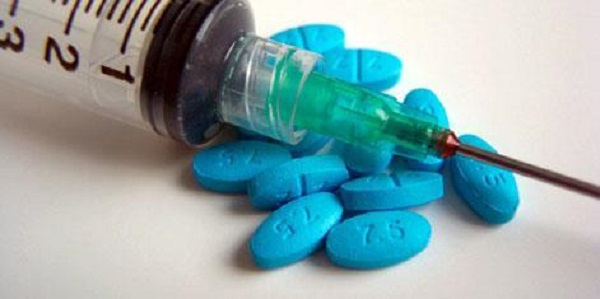Govt offers free mass treatment

Whinsley Masara, Chronicle Reporter
THE Government has embarked on a countrywide mass treatment exercise for elephantiasis, bilharzia and intestinal worms targeting both children and adults.
The mass treatment campaigns for elephantiasis and intestinal worms started on Monday this week and will end on Saturday.
Bilharzia will be treated between September 26 and October 1.
The Ministry of Health and Child Care in conjunction with the Ministry of Primary and Secondary Education and other partners is running the exercise.
Ministry of Health and Child Welfare Director for Epidemiology and Disease Control, Dr Portia Manangazira said an increase in elephantiasis recorded in 39 districts last year necessitated the launch of the programme.
Elephantiasis refers to a parasitic infection that causes extreme swelling in the arms and legs. The disease is caused by the filarial worm, which is transmitted from human to human via the female mosquito when it takes a blood meal.
The parasite grows into an adult worm that lives in the lymphatic system of humans.
“As a measure to eliminate the Neglected Tropical Diseases that include Lymphatic Filariasis (elephantiasis), Schistosomiasis (bilharziasis) and Soil
Transmitted Helminths (intestinal worms), the Ministry of Health and Child Care in collaboration with the Ministry of Primary and Secondary Education with technical and financial support from WHO, THE END FUND, UNICEF and WVI will undertake a mass treatment campaign.
“It is targeted at all children and adults starting from two year olds including all adults for lymphatic filariasis, one to 15 years for intestinal worms and five to 15 years for bilharzia in all the targeted endemic districts,” said Dr Manangazira.
She said through a 2014 national survey, active infection or prevalence of Lymphatic Filariasis was identified in 39 districts in Zimbabwe.
“Schistosomiasis or bilharziasis is a widespread disease present in 56 districts caused by worms whose eggs cause rectal and urinal bleeding leading to loss of blood and ill health,” said Dr Manangazira.
The Ministry of Health has also indicated that the survey showed intestinal worms are more prevalent in 47 districts of the country.
“Intestinal worms which include hookworms, round worms and whipworms are chronic infestations which contribute to the cause of poverty through impairing cognitive performance and reducing the work capacity of both children and adults. The disease is found in 47 districts of the country.
“The indicated diseases may present no symptoms, hence the targeted groups with or without symptoms in affected districts should come for treatment, and avoid the long term consequences of carrying the parasites within their body,” said Dr Manangazira.
The Ministry of Health is urging the targeted communities to present themselves at nearest schools, health facilities and designated outreach points for free treatment.
Parents and school authorities are urged to ensure that children taking medicines take a meal beforehand to minimise occurrence of discomfort if taken on an empty stomach.
A national launch will be held in Masvingo on Wednesday and the programme will be concluded in Binga next month.
The ministry and its partners, said Dr Manangazira, have been undertaking a mass drug administration campaign targeted at children aged one year and above including adults.
“The vaccination programmes are being done at three intervals, as from the 25th to the 30 of July 2016, 12th to 17th September 2016 and 27th September to 1st October 2016.
“These are also being run in schools, clinics and hospitals with people being encouraged to go for vaccination,” she said.
@winnie_masara








Comments